VERSATILE ACTRESS PANNU ON HER SURPRISING NEW FILM BADLA AND BIG AMITABH BACHCHAN REUNION
by MOHNISH SINGH
Rising star Taapsee Pannu has cemented her position as one of the most versatile actors in India with powerful performances in both commercial and unconventional cinema.
She has given extraordinary and authentic performances in movies including Pink, in which she played a victim of circumstance, a secret agent in Naam Shabana, a lawyer in Mulk and in Manmarziyaan as a high-spirited woman living life on her own terms.
After headlining five films in 2018, including a Telugu romantic action entertainer, Taapsee begins 2019 by playing a sharp, strong-willed businesswoman in the Sujoy Ghosh-directed thriller Badla, which is produced by Shah Rukh Khan. The remake of the Spanish film Contratiempo reunites the actress with Pink co-star Amitabh Bachchan.
Eastern Eye caught up with the beautiful actress to talk about Badla, her multi-layered character, the much-anticipated reunion with Amitabh Bachchan and forming a connection with audiences.
You are joining forces with Amitabh Bachchan once again after Pink. How was the environment different on the sets this time around?
(Smiles). It was a Bong set again. We had a Bengali director. We had a Bengali DOP (director of photography), who was the same person who worked on Pink. And we had a Bengali sound recordist. So most of the conversations happened on the set were in Bengali, and I was trying to figure out if I should start learning Bengali as well now. It looked like it’s going to be handy in future. So it didn’t feel like it was a different environment. It felt like I had finished the first schedule of Pink, took a brief break, and joined the team again to wrap up the second schedule. It was like that, actually.
Do you believe in taking badla(revenge)?
It’s a human emotion. Everybody likes to take revenge at one point or another. It’s better we accept that instead of saying we don’t believe in revenge. Yes, our ways of seeking revenge do change over a period of time. When I was a 10-year-old girl, my way of taking revenge was something different and now, when I am a 30-year-old woman, I’ll take revenge in some other way.
Do you wish to take revenge from audiences when well-made films like Mulk and Manmarziyan did not perform that well at the box-office despite critically-acclaimed performances from you?
Mulk released in just 800 screens. It did do the kind of business, which you expect from 800 screens. Maybe if more screens were allotted, it would have done better. Coming to taking revenge from audiences; I believe that we have given them so many mediocre films over the years along with feeding their mind that a film, which may work at the box-office, will have only these ingredients. If some filmmakers are trying to bring about a change in cinema that will not happen overnight. It will take some time. It also depends on actors that how long they will keep doing different kinds of cinema. I have the courage to do so.
How different is your Badla character Naina Sethi from Pink’s Minal Arora?
Naina and Minal are like chalk and cheese. Naina is completely different from Minal. For Minal, Deepak Sehgal (Amitabh Bachchan) came in as a god to save her and get her justice. Naina has hired Badal (Amitabh Bachchan). She has the authority because she is the one who has hired him. So now the equation is very different. This character is not a helpless woman whose life will be destroyed if he does not help her. She is a very sharp businesswoman. Whatever she has done in her life, she has done it on her own. She is a self-made strong woman who runs her own business in Scotland. She is not the one who you can play around with easily. So it’s a completely different character.
You have made a huge fan base in no time. What, according to you, is your unique selling point (USP)?
I think I can connect with the average Indian audience. That is my USP. I don’t know whether it’s because I choose those types of roles and issue-based films. I am an average Indian. I don’t think I am extraordinary as a person and that’s why I can easily connect with the average Indian. That becomes my USP. When I choose a film, I try to know whether I can feel what my character feels. If I feel it, I believe I can make my audience too feel it. So I choose my roles on that basis. I cannot forcefully make my audience feel anything. If I feel something, only then I can make them feel it.
You are doing so well in Bollywood, but you still find time to do at least one film a year in South India. How do you do it?
Yeah, I do one film every year in south. After Badla, my next south Indian film is going to release. It’s a bilingual film in Tamil and Telugu. It’s called Game Over.
Do you feel your role in Badla will be on par with Vidya Balan’s role in Kahaani and Radhika Apte’s role in short film Ahalya. Both thrillers were helmed by Sujoy Ghosh…
If I say something with overconfidence, it would be that my role in Badla is very good. To know more, please wait for it’s release. But I say it again that it’s a beautiful role.
What are your favourite Bollywood thrillers?
I think it has been a long time since we have not made a gripping murder thriller.
What about Andhadhun (2018)?
Andhadhun was not a murder thriller, really. It’s a dark comedy of sort, actually. But that was brilliant, man.
With social media, it’s very easy to give out spoilers. So do you think that it’s also one of the reasons many filmmakers are not making murder thrillers that frequently?
A lot of people did raise the same question when we decided to do Badla. But tell me one thing, whenever we watch a love story, we know that the boy and the girl are going to meet at the end, but how they meet is why we watch films for. In Badla, the point is not who has done it. The point is how you get to know the person who has done it.
As we all know that Badla is an official adaptation of the 2017 Spanish film Contratiempo (The Invisible Guest). Has Sujoy Ghosh made any changes in the Hindi adaptation?
He has just filled up some loopholes. Sujoy had watched the film with hair-splitting accuracy. After watching it, he found a lot of loopholes, which he tried to fill up and made it very relatable to the Indian audience. You will understand when you see the film. You will not feel like you are watching the same movie.
Were you intimidated by Amitabh Bachchan this time also?
Even last time I was not intimidated by him. It was only on the first day that I was intimidated by him; but then I realised I had to switch off this button and I did that. And after that, there was no looking back. I have not touched that button ever since. It’s true that on the first-day shoot of Pink, I had faced several problems. But after that, I never felt intimidated by him.
Didn’t you feel bad about the fact that Shah Rukh Khan is not in the film despite it being his home production?
(Laughs). He might be there. You never know.
The original film was told from a man’s perspective, but here we see a woman at the helm of affairs.
I asked for that. Actually, I was supposed to do the girlfriend’s part. However, when I saw the original film and heard the script of Badla, I wanted to play the man’s part. And this led to the gender reversal of characters.
How did you convince Sujoy for that?
Actually, when this role was given to me, Sujoy was not locked. Nobody was locked. Besides me, the makers were pitching the same role to other actresses also. When producer Sunil Khetrapal approached me, I said to him that I would do it, but only if he gave me the man’s role. So he was like, ‘let me think about it. Let me discuss it (with other producers).’ After some days he came back and said, ‘okay, we are okay with that.’ After Judwaa 2 (2017), we have not seen you in any out-and-out mainstream commercial film. After Judwaa 2, the definition of mainstream has changed. Having said that, I do want to do those types of roles as well, but somebody should approach me first. I think there is a long queue of ladies who are much better than me to do such mainstream kind of roles.
Tell us, do you feel somewhere that Tollywood and Kollywood did not tap into your potential completely?
I think language plays a big part in deciding what types of roles are offered to you. While working here in Bollywood, I know that my command over language helps me so much in getting a role. A lot of people come to me just because they know my Hindi is so strong, which is not the case with many other actresses out there. The same applies to me when I work in south. But, now the story is totally different though. Now they approach me for some really interesting roles, maybe because the language is not really a big barrier for me now.
Big B has just completed 50 years in the Hindi film industry. Badla is going to be his first release in the 51st year. What do you have to say?
I am happy that I am a part of his those 50 years. How many actors get a chance to work with him twice from the present generation? So I feel I am very lucky.
What has been the most challenging role of your career?
The most challenging role of my career is just coming up with Saand Ki Aankh. I don’t know how I am going to do it and what is going to happen. (Laughs). I pray, god save me.
Badla is in cinemas now





 Priyanka Chopra calls herself nascent in Hollywood as 'Heads of State' streams on Prime VideoGetty Images
Priyanka Chopra calls herself nascent in Hollywood as 'Heads of State' streams on Prime VideoGetty Images  Priyanka Chopra wants to build her English film portfolio after Bollywood successGetty Images
Priyanka Chopra wants to build her English film portfolio after Bollywood successGetty Images 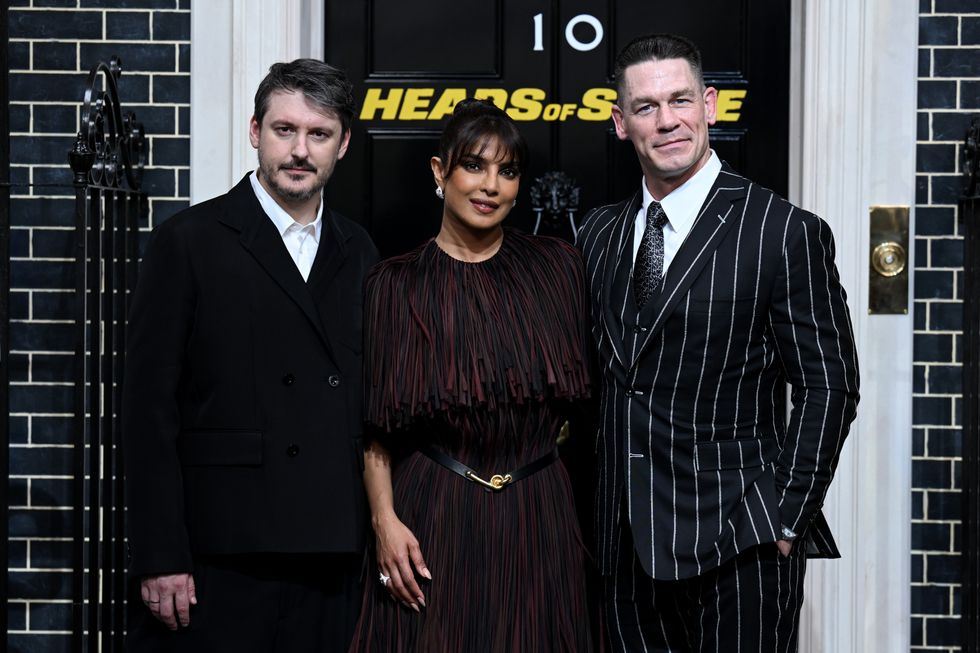 Ilya Naishuller, Priyanka Chopra and John Cena attend the special screening for "Head of State" Getty Images
Ilya Naishuller, Priyanka Chopra and John Cena attend the special screening for "Head of State" Getty Images








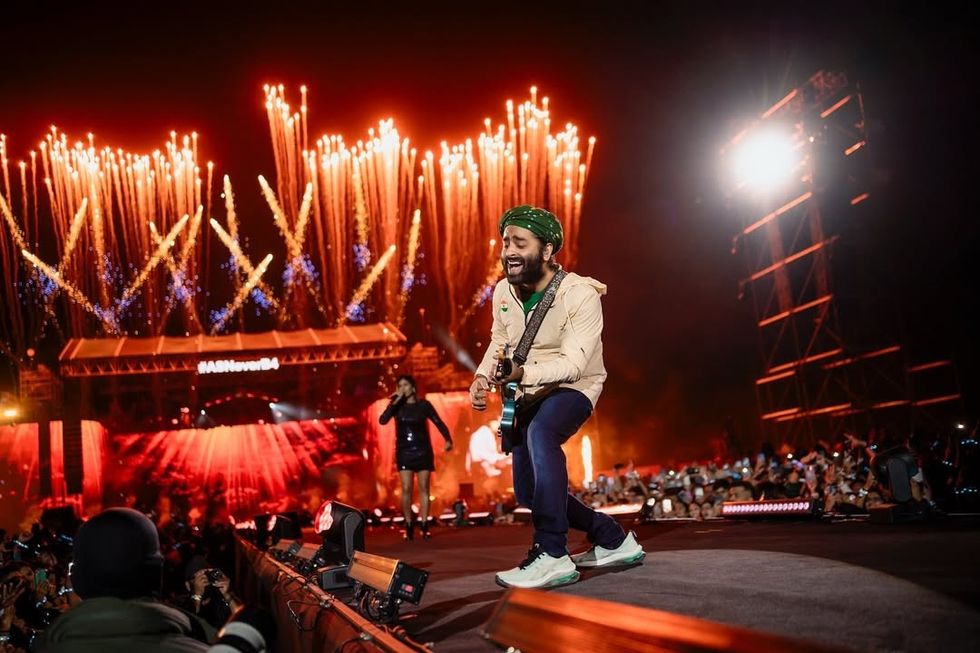 Arijit Singh performing Instagram/
Arijit Singh performing Instagram/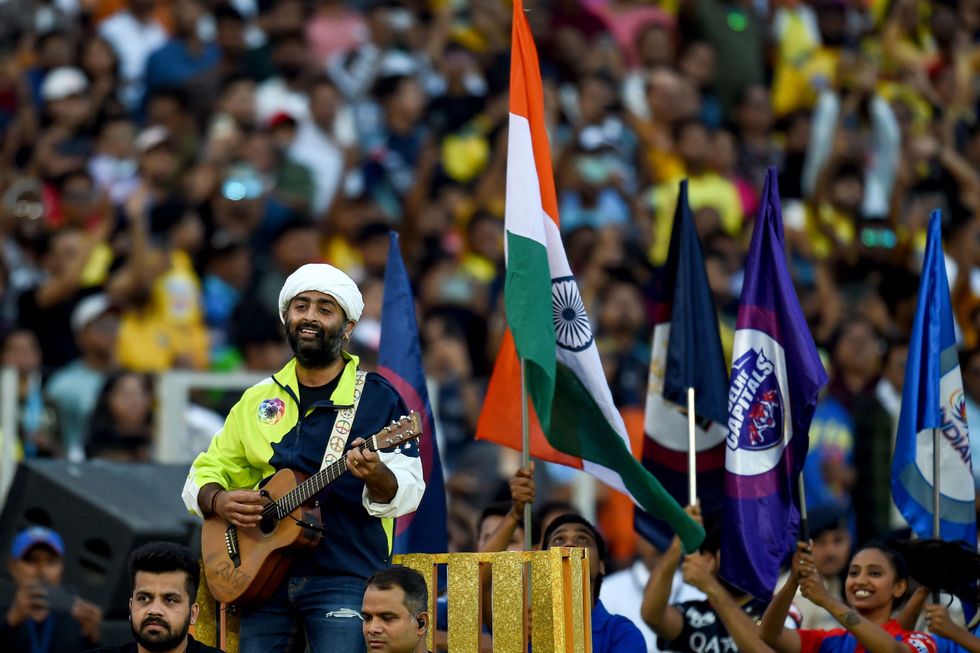 Arijit Singh clicked during a performance Getty Images
Arijit Singh clicked during a performance Getty Images 


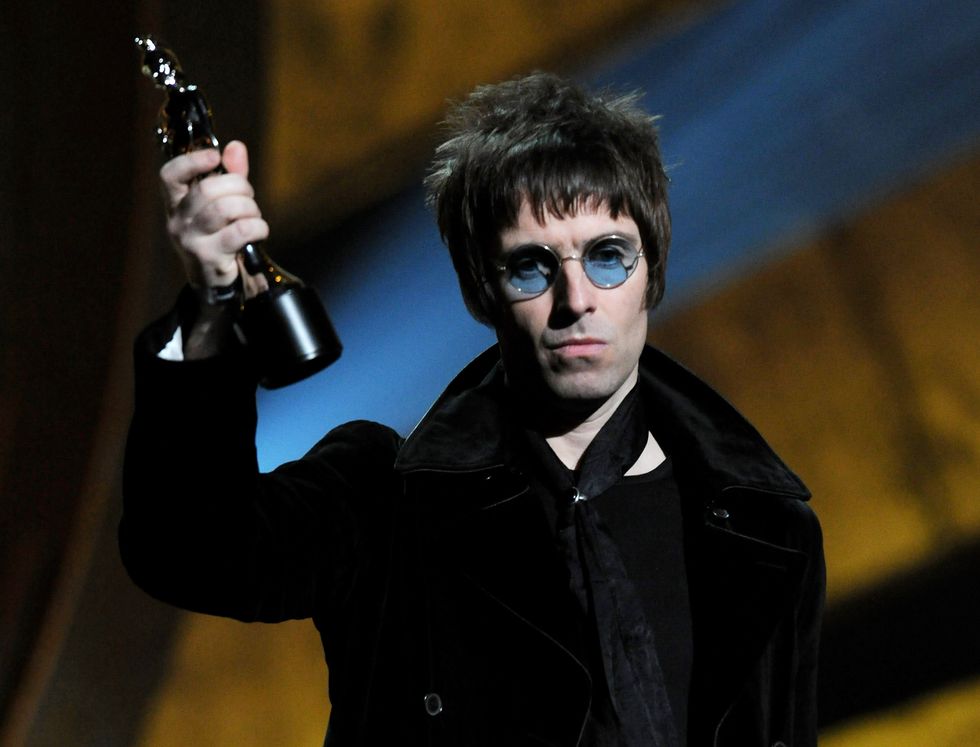 Liam Gallagher accepts Oasis' award for 'Best Album of 30 Years' Getty Images
Liam Gallagher accepts Oasis' award for 'Best Album of 30 Years' Getty Images  Liam Gallagher plays to a sell out crowd at the Universal AmphitheatreGetty Images
Liam Gallagher plays to a sell out crowd at the Universal AmphitheatreGetty Images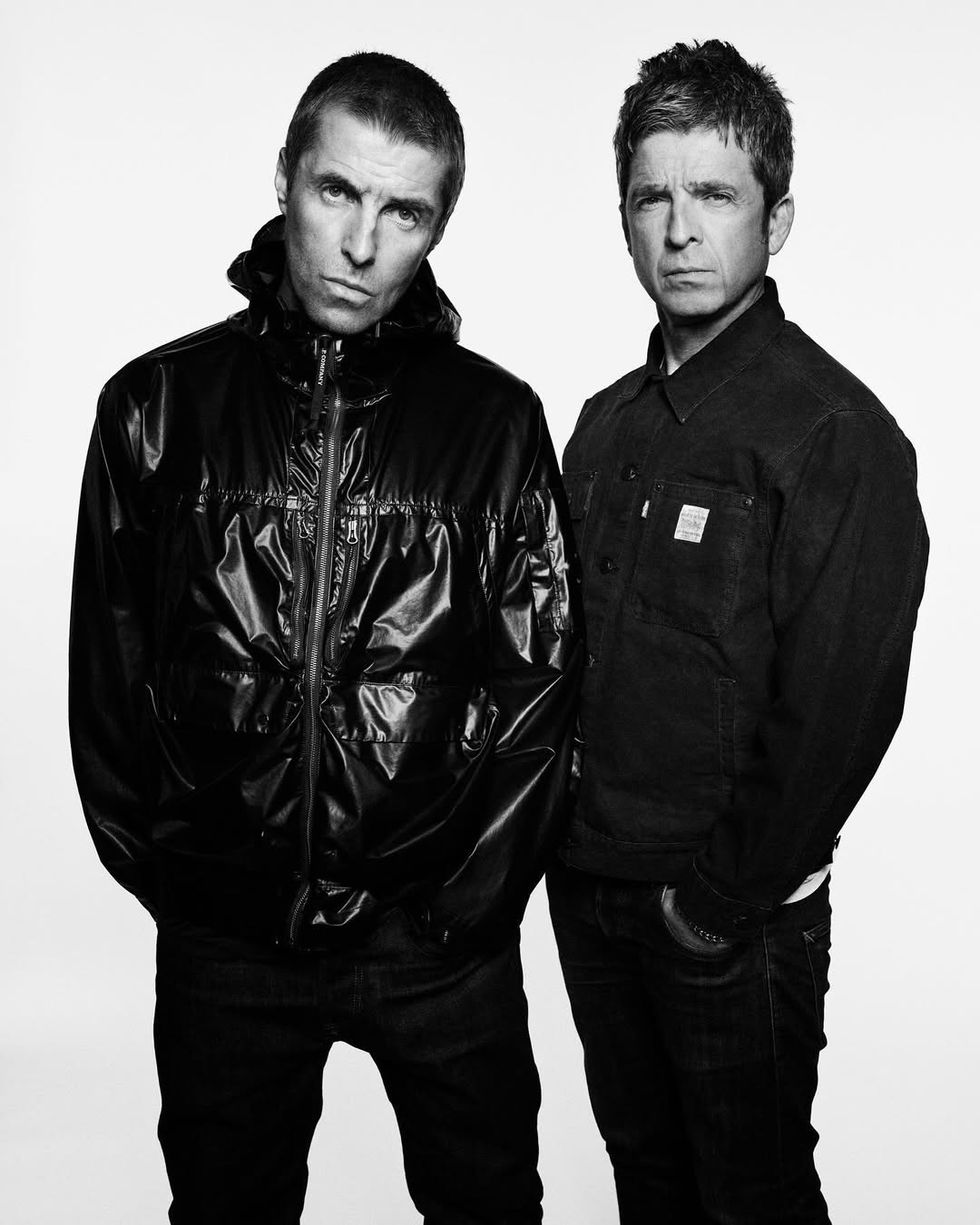 Liam and Noel Gallagher perform together in Cardiff for the first time since 2009 Instagram/oasis
Liam and Noel Gallagher perform together in Cardiff for the first time since 2009 Instagram/oasis